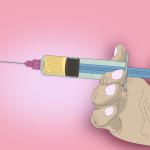Our world faces many serious problems. Just under one billion people do not have electricity. Millions die every year in abject poverty due to lack of access to basic necessities, such as clean food and water and healthcare.
social media
Which snowflake caused the avalanche? It's a ridiculous question because we all know the answer: Blame can't be placed on any particular snowflake; it was the accumulation of billions of them that caused the avalanche.
As the holiday season ends, as it inevitably will, it will become the season of self-congratulatory award ceremonies.
The old adage that a lie can traverse the globe before the truth puts its shoes on has never been more relevant than it is today. Because of social media, lies can literally spread around the world in mere seconds.
Social media in general, and Twitter in particular, is an absolute sewer pipe.
A 16-year-old girl uses her social media account to post a question: Should I kill myself? Sixty-nine percent of people who responded said yes. So she did.
The Age of Social Media has been an eye-opening experience. As a friend of mine once noted, "Social media has made us realize that our neighbors are a bunch of jerks."
In an effort to quell the spread of health misinformation, social media company Pinterest is thwarting the capacity to make vaccine-related searches on its platform.
By Kim Heyes, Manchester Metropolitan University











